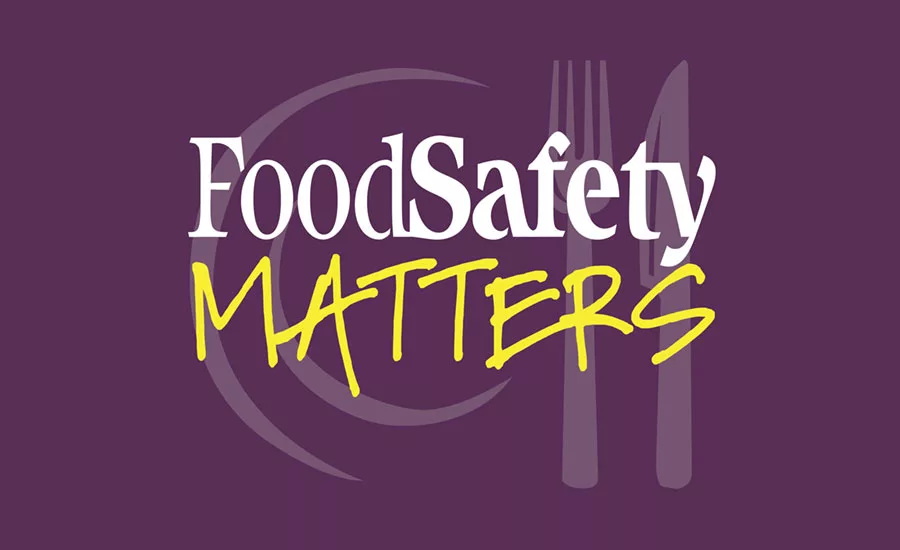Ep. 68. Steve Mandernach & Ernie Julian: What Keeps State Regulators Up at Night: Part 2

Steven Mandernach is the executive director of the Association of Food and Drug Officials (AFDO), which unites high-level regulatory officials, industry representatives, trade associations, academia, and consumer organizations. Prior to becoming executive director in 2018, Steve was the bureau chief for food and consumer safety at the Iowa Department of Inspections. He is a past president of AFDO and current co-chair of the Association’s Laws and Regulations committee. He has a J.D. from Drake University Law School.
Ernest Julian, Ph.D. is chief of the Center for Food Protection for the Rhode Island Department of Health, a position he has held for the last 30 years. Prior to this, he was with the Connecticut Department of Health for 14 years. He is president of the Association of Food and Drug Officials (AFDO) and he has served as AFDO’s representative to the Council to Improve Foodborne Outbreak Response (CIFOR), and the U.S. Centers for Disease Control and Prevention (CDC)’s FSMA Surveillance Workgroup. Ernie is also an adjunct assistant professor of Health Services, Policy, and Practice at Brown University.
Subscribe on Apple Podcasts | Stitcher | Google Play | Android
For access to more podcast episodes, click here.
In this episode of Food Safety Matters, we speak to Steve and Ernie [37:07] about:
- Recruiting and retaining employees in food regulation and industry sectors
- Proper allocation of resources for food facility inspections
- The importance of follow-up after a less than stellar inspection
- Teachable moments and their effect on behavioral change with consumers
- How upper management can become powerful advocates for inspectors in the field
- How AFDO approaches messaging with consumer audiences
- Leafy greens contamination
- Ongoing and potential future food safety challenges
We also speak to the International Food Information Council (IFIC)'s Joe Clayton (CEO) and Silvia Dumitrescu [16:25] about:
- IFIC's recent leadership restructuring
- How the organization is aligning itself with ever-changing consumer demands and needs
- Keeping science at the forefront of consumer messaging, and how social media has changed the way data is disseminated
- New research and data on food fraud
Steve Mandernach's Articles in Food Safety Magazine
Keeping Food Safe in the C-Store Environment
Unsung Heroes: State and Local Public Health Officials Innovating Outbreak Investigations
Responding to Harvey and Irma: Rapid Response Teams Take Action
Building an Integrated Food Safety System One Brick at a Time
Integrating the Nation's Food Safety System: What You Need to Know
Ernie Julian's Articles in Food Safety Magazine
Where the Rubber Meets the Road: RRTs in Action
Creating the Rapid Response Road Map: Collaboration Points the Way Forward
Resources:
AFDO Retail Webinars (Hepatitis A and Norovirus)
FoodInsight.org
IFIC Presentation: Trust in a Changing World: Consumer Perception in the Age of Social Media
Q&A: "Scheduling Nightmares"
I have only recently begun listening to your show, and love the content. It is interesting and engaging while still being challenging, complex, and informative. There may be some past content that I have not observed that answers my question, but I have a question for your team.
Looking for quick answers on food safety topics?
Try Ask FSM, our new smart AI search tool.
Ask FSM →
With some recent spikes in demand, our plant has opted to fluctuate/extend schedules and has a history of regular (excessive) overtime requirements. We are fortunate to have a solid staff with dramatically improved retention and our plant safety mechanisms have been successfully over-hauled. Now, however, we have begun to ask operators to work additional days and also begin their shifts much earlier from (6 am to 3 am). This is having a directly negative impact on our sanitors who typically have to react to the changing production schedules, reduces supervisory oversight, and may lead to burnout. The QA staff is also not available to be on-site during the extended manufacturing hours. As a team leader in QA, I am attempting to demonstrate that there is sufficient added risk in these methods to rule them out except under defined circumstances.
My question is about the probable impacts of varying, unpredictable schedules on food safety.
Overall a good problem to have (product in high-demand), but we as an organization need to fully understand the risks to guide our actions. If you have any support, I appreciate it!
Response from Mike Cramer:
What I can provide is more of my anecdotal experience with some of our plants where constantly changing and extended schedules ultimately lead to employee dissatisfaction, tardiness and absenteeism and ultimately turnover. We experienced this a year or so ago when we opened up our newest facility in Joplin, MO with the concept of continuous runs with built-in sanitation periods. However, the management of the process was inconsistent and we were not able to maintain an effective work staff because personnel were unhappy with not having a set schedule around which they could plan their family/personal life.
If the plant is regulated by USDA, it would have to provide the area supervisor with a set schedule so that an inspection for pre-op could be assigned; and the plant would not be able to run beyond the time they set with USDA; otherwise, they would run into situations where they are operating without benefit of inspection.
A possible solution would be to modify FSQA staff hours so that there is 24-hour coverage with overlap as needed. This would be dependent upon the size of the staff and their flexibility to work off-hours, but when I worked at a hot dog/sausage plant in Chicago many years ago I had to do this with personnel due to the time the sanitation team worked and pre-op needed to be conducted, the time that grinding and blending started and the time second shift finished at night. However, that was a much more consistent schedule, particularly since it was a USDA operation.
What I would suggest is that the individual also partner with other departments, such as HR, to determine the turnover rate in various departments and how this might impact their efficiencies. I’d also want to know, from an HR perspective, whether this inconsistency of scheduling could put the plant into a conflict with labor laws. Finally, the biggest factor is whether this shortening of the time for sanitation is having a direct impact on the sanitary operating conditions of the plant. Sometimes this is not noticeable immediately but “builds up” over time. It may be an indicator that you are not cleaning effectively due to fatigue or due to lack of time to be thorough.
News Mentioned in This Episode
Food Safety Summit Announces New Dates for 2020 Event Due to Coronavirus [9:39]
FDA Updates Stats of Foreign Inspections Amid COVID-19 [10:28]
FDA's 2020 Leafy Greens STEC Action Plan [11:57]
Sponsored By:

Virtual Classroom - Our Virtual Classroom delivers the learning benefits of live, instructor-led training through an interactive, convenient, and cost-effective virtual platform. With Virtual Classroom, you can join a live training event from any location, while engaging and learning as if you are physically present in the classroom. Any of our public training is also offered for private groups. April’s course topics include:
Labeling of Food Products (April 7-8)
ISO 22000 Foundation + FSSC 22000 V5 Review (April 7-8)
Food Defense Coordinator (April 15-16)






